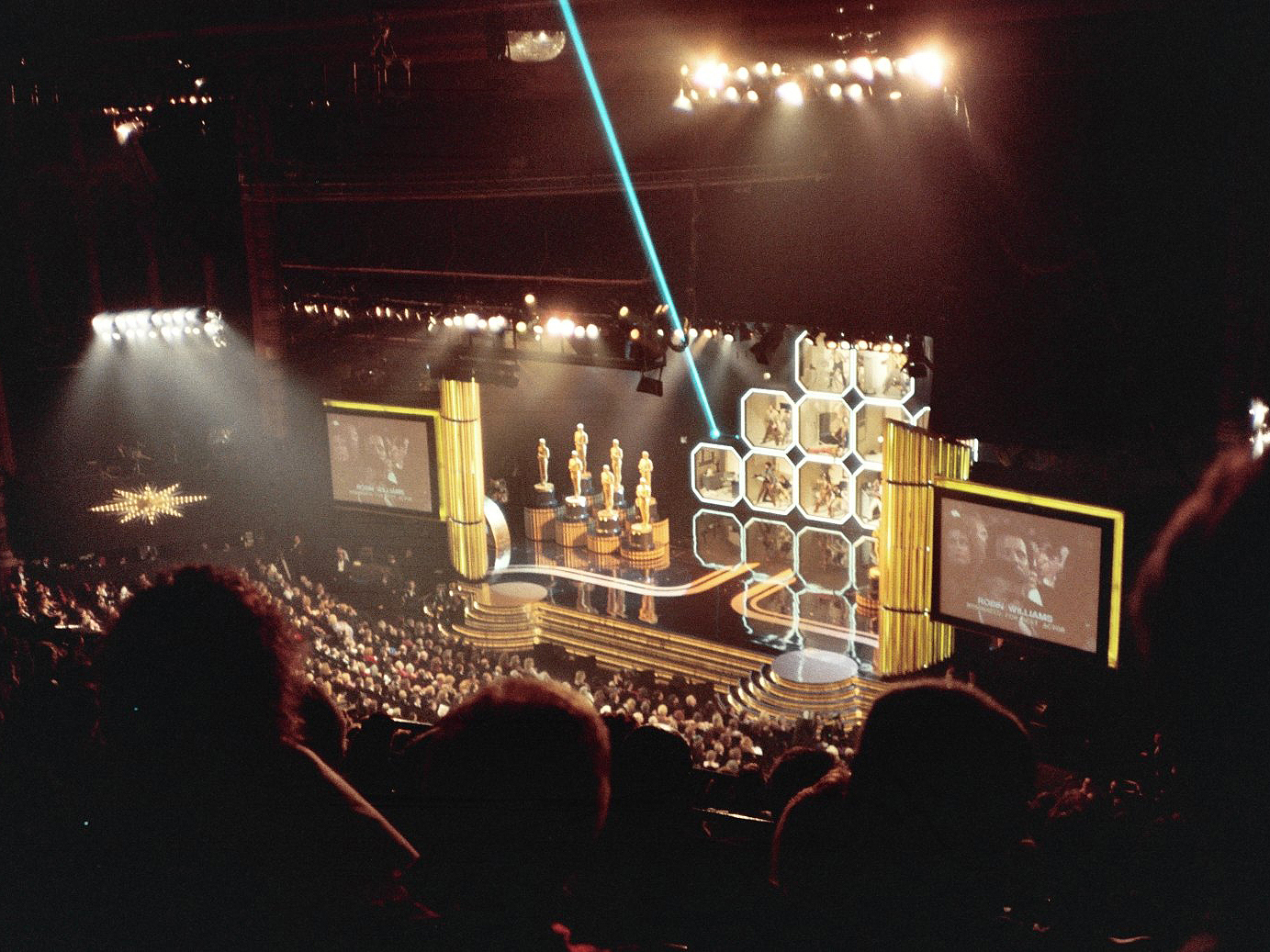
As everyone is already painfully aware of at this point, 2020 was a depressing year that changed how we all consumed entertainment media. Streaming became the primary source of escapist entertainment as theaters closed down. As that year’s awards season loomed, audiences were given empty auditoriums with Zoom acceptance speeches. Comedy attempted to alleviate any awkwardness but mostly fell flat as a result. With the COVID-19 vaccine becoming more widely circulated, this year’s Academy Awards was able to be held indoors with a live audience, albeit greatly reduced. Unfortunately, a live audience hardly made the show any more lively.
Rather than the traditional Dolby Theater, the 93rd Academy Awards took place in a much smaller venue to accommodate for a much smaller audience. This year, Los Angeles Union Station housed the honored guests of the film industry for another hostless Oscars ceremony.
The last time the Oscars had a host was with Jimmy Kimmel in 2018, and 2021 is the latest attempt at a hostless ceremony. Though it is true that the Oscars have been steadily losing audiences for years now, ditching hosts has been the wrong move. Forfeiting a steady presence through the night’s proceedings in exchange for a hodgepodge of loosely aligned performances and sporadic interruptions by different mini-hosts has resulted in a disjointed and unengaging event these past few years. To make matters worse, this year, the Oscars practically ditched all of its fun interruptions: no performances, no comedic interruptions and no thematic throughline.
This year’s Academy Awards opened with a brief opening monologue from Regina King, who provided an enjoyable yet unremarkable start to the night’s proceedings. What followed was a repetitive formula of providing a new presenter for every two awards with forgettable acceptance speeches in between. Only once did the show provide a break from the formula for an oddly executed game involving songs from film history. The result of this utilitarian take on the ceremony was a boring and uninspired television event that hardly justified a three-hour time slot. In essence, the Oscars were a banquet for Hollywood rather than the entertaining awards ceremony of past years.
The one area where the 2021 Academy Awards did shine, however, was in its nominees and winners. This year was perhaps the most diverse year for the Academy Awards, an admittedly low bar to be sure. The nominees this year featured countless people of color, and the winners were no different. Chloé Zhao became the first woman of color to win best director for her work on “Nomadland.” Additionally, acting awards like best supporting actor went to Daniel Kaluuya for his performance in “Judas and the Black Messiah,” and best supporting actress went to Yuh-Jung Youn for her role in “Minari,” both in recognition of their outstanding performances. These were but a few of the diverse Oscar winners of the night. Chloé Zhao was not the only Oscar first that night, as Mia Neal and Jamika Wilson became the first Black women to win best makeup and hairstyling for their work on “Ma Rainy’s Black Bottom.”
For the duration of the ceremony, proceedings occurred rather expectedly. As previously mentioned, the show failed to keep the audience’s attention despite groundbreaking nominations and wins. However, the biggest surprise and disappointment occurred at the show’s finale where tradition was ditched for an uninspired ending. Rather than keeping with tradition and anticipation for best picture, the 93rd Academy Awards announced the best picture winner before best actress and then finally best actor. Many suspected this was to end on a high note as the expected best actor winner was the late Chadwick Boseman for his stunning performance in “Ma Rainy’s Black Bottom.” That excitement was short-lived as last year’s best actor winner, Joaquin Phoenix, announced that the absent Anthony Hopkins, who gave an outstanding performance in “The Father,” won best actor. This unexpected announcement was followed by an abrupt ending as the Academy accepted the Oscar on Hopkin’s behalf and subsequently ended the show, and the tens of viewers sat stunned.
All in all, the 93rd Academy Awards were a boring slog of a show. Filled with inspiring nominations and spectacular wins, the show’s format failed to entertain and justify prolonged viewing. Granted the circumstances surrounding the pandemic limited attendance and made grand performances a logistical nightmare, if the Academy chooses to continue their hostless trend, the future of the show will likely continue to be a downward trend of decreasing viewership.







